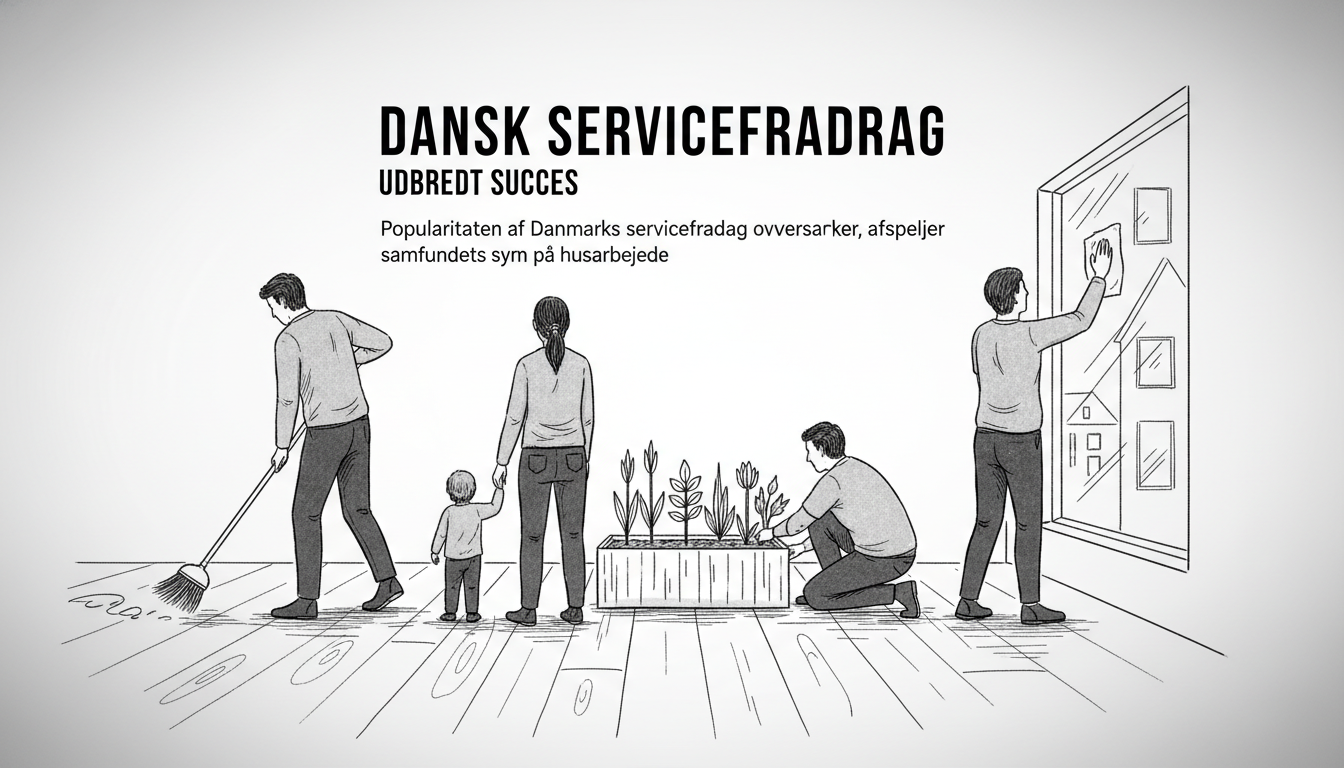A special tax deduction for household services has become much more popular than Danish authorities anticipated. The service deduction allows residents to claim expenses for childcare, window cleaning, and lawn mowing on their tax returns.
The program began in 2011 and has nearly doubled in usage in recent years. Many Danish families now use the deduction regularly for various household tasks.
This tax benefit helps middle-class families manage household costs while supporting local service providers. The deduction covers many common services that families need throughout the year.
Danish tax authorities initially projected modest participation rates. The actual uptake surprised government officials and tax experts alike. The program's popularity suggests many households value the financial relief it provides.
Why has this deduction become so widely used? The answer lies in Denmark's high income tax rates and the practical needs of working families. Many households find it makes financial sense to hire help for certain tasks rather than doing everything themselves.
The service deduction reflects Denmark's approach to social welfare through the tax system. Unlike some countries that provide direct subsidies, Denmark often uses tax benefits to support social goals. This method allows citizens to choose which services they need most.
For international residents in Denmark, understanding this deduction is crucial. Many expats may not realize they can claim these expenses. The program applies to anyone paying Danish taxes, regardless of nationality.
The deduction's growth also indicates changing attitudes toward household work. More families now view hiring help as a practical solution rather than a luxury. This shift aligns with broader trends in Scandinavian countries where work-life balance receives high priority.
Local service providers benefit significantly from this system. Small businesses offering cleaning, gardening, and childcare services see increased demand. The tax incentive makes their services more affordable to average families.
Some critics question whether the deduction primarily benefits higher-income households. Others argue it helps middle-class families manage busy lives. The debate continues as the program evolves.
The deduction's popularity shows no signs of declining. Danish families continue to discover its benefits each tax season. The program has become an established part of Denmark's social welfare landscape.
What does this mean for Denmark's future? The success of this deduction suggests similar programs might expand. Other Nordic countries watch Denmark's experience with interest. The model could influence social policy across the region.
For now, the service deduction remains a popular feature of Denmark's tax system. Its unexpected popularity demonstrates how practical benefits can resonate with citizens. The program shows how tax policy can directly affect daily life choices.

